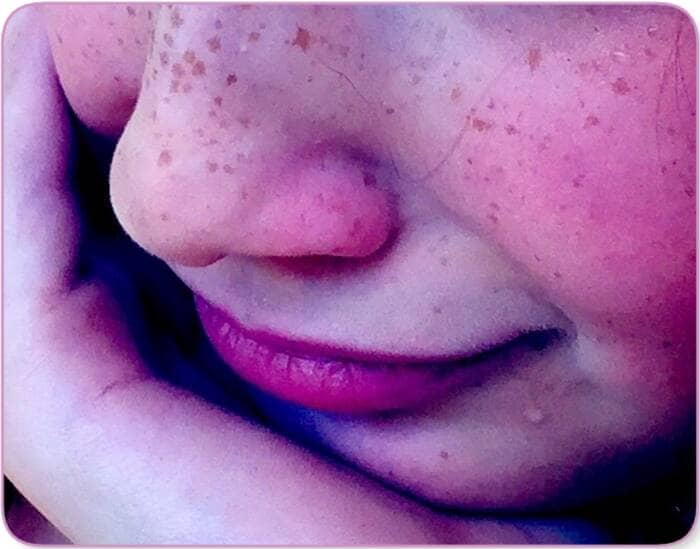How do you release a closed locked jaw? I can’t open my mouth wide anymore, is it trismus? What causes it? How to treat it? How can I unblock my jaw? Who should I consult? And finally, how do I treat dislocation of the jaw?
I. How Do You Release a Closed Locked Jaw?
1. What Is Lockjaw (Trismus)?
In the case of trismus, the muscles of the jaw contract involuntarily. We are talking about the masseter and pterygoid muscles.
The trismus prevents the opening of the mouth. This can be reduced by half or even more. Or even completely prevent the mouth from opening.
The normal opening of the mouth is 3 fingers. In cases of trismus, it can be reduced to one finger, or even none.
Difficulty opening the mouth interferes with the vast majority of social and personal activities. Having trismus can make brushing your teeth, laughing, or yawning painful.
Therefore, it is important to act when suffering from this type of pain. To do this, it is first necessary to know the causes.
2. Possible Causes of Trismus
The probable causes of trismus are of several types. You can develop it because of a sore throat for example.
Cellulitis of dental origin is also a common cause of trismus.
Treatment with neuroleptics can also have the side effect of developing trismus.
Evolving lesions or infections can also cause trismus. These include pharyngitis, osteitis, stomatitis, and arthritis.
It is also possible that following a surgical operation, at the level of the wisdom teeth.
A periarthritis can also be the cause of a jaw lock, also called the temporomandibular joint.
Some cancer treatments can also cause trismus. This happens especially if cancer in question is a cancer of the head or neck.
Radiation therapy, as well as surgery to treat the tumor, can both lead to trismus.
Another cause of trismus is trauma, due to an accident. A shock or impact can cause the jaw to lock.
3. How Do You Treat Lockjaw?
Treatments for trismus are mainly related to the cause of the trismus. For example, in cases of periarthritis, treatment with anti-inflammatory injections may be sufficient.
First, it is important to treat the cause of the trismus, before addressing the symptoms.
To do this, medical treatment including painkillers and muscle relaxants can be used. It is also possible to use local anesthesia infiltrations.
Physiotherapy sessions may then be necessary. These are exercises that restore the proper functioning of the muscles that play a role in chewing. These exercises restore some of the facial mobility that the trismus may have impeded.
If the trismus is related to wisdom teeth, antibiotics, anti-inflammatories, and mouthwash are often prescribed.
II. How to Unblock the Jaw?
When the jaw is locked, the first thing to do is to relieve the pain. An analgesic allows the temporomandibular joint to rest.
Gymnastics therapy consists of a series of exercises that gradually unblock the affected jaw. It is done gently, first with the application of warm gloves and then with slow stretching exercises.
III. How Do You Know if Your Jaw Has Moved?
To diagnose a jaw lock, there are several symptoms. Muscle tenderness and ear pain of varying degrees may be signs.
If the jaw produces sound during chewing, such as cracking, or if you have a headache, then you may have a displaced jaw.
IV. Who to Consult for Jaw Pain?
In the case of jaw pain, it is important to consult a professional. It is best to consult a dentist or stomatologist to be sure that it is not a dental problem. A specialized osteopath may then be a good idea.
V. How to Treat a Dislocation of the Jaw?
To treat dislocation of the jaw, a physiotherapist can manipulate the jaw.
It is also possible to apply a bandage to avoid too much movement of the jaw. An occlusal device can also be used.
Finally, surgical treatment is always a possibility.
VI. How to Rest the Jaw?
To rest the jaw, one must do everything possible to avoid overworking the jaw muscles. It is thus necessary to avoid chewing too hard foods, gums, or candies.
You should also massage your ears and soften your jaw by moving it slowly.
Kneading the chin can also help rest the jaw.
VII. Wisdom Teeth, I Can’t Open my Mouth Anymore
Wisdom teeth can have several symptoms.
Pain in the gums, swelling, or pus when there is an infection. It is also possible that having wisdom teeth blocks the opening of the mouth.
Once the wisdom teeth are removed, you may also develop difficulty opening your mouth for a time.
VIII. Dental Abscess, Impossible to Open the Mouth
A dental abscess is also a cause of trismus. It develops on the gum or the root of a tooth and is extremely painful.
It is an infection, often requiring a visit to a dentist.
Useful Links:
This weight-loss device locks your jaw nearly shut. Experts say that’s dangerous and barbaric
Protocol for the trismus trial
Why Won’t My Canker Sore Go Away?
Can You Heal Cavities Naturally at Home?

